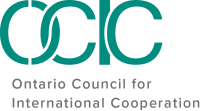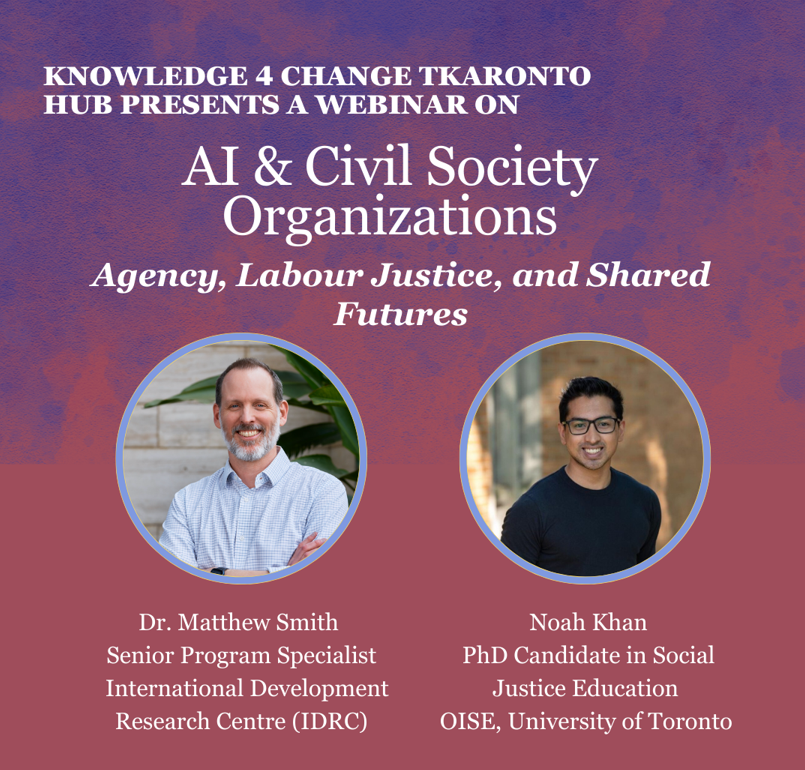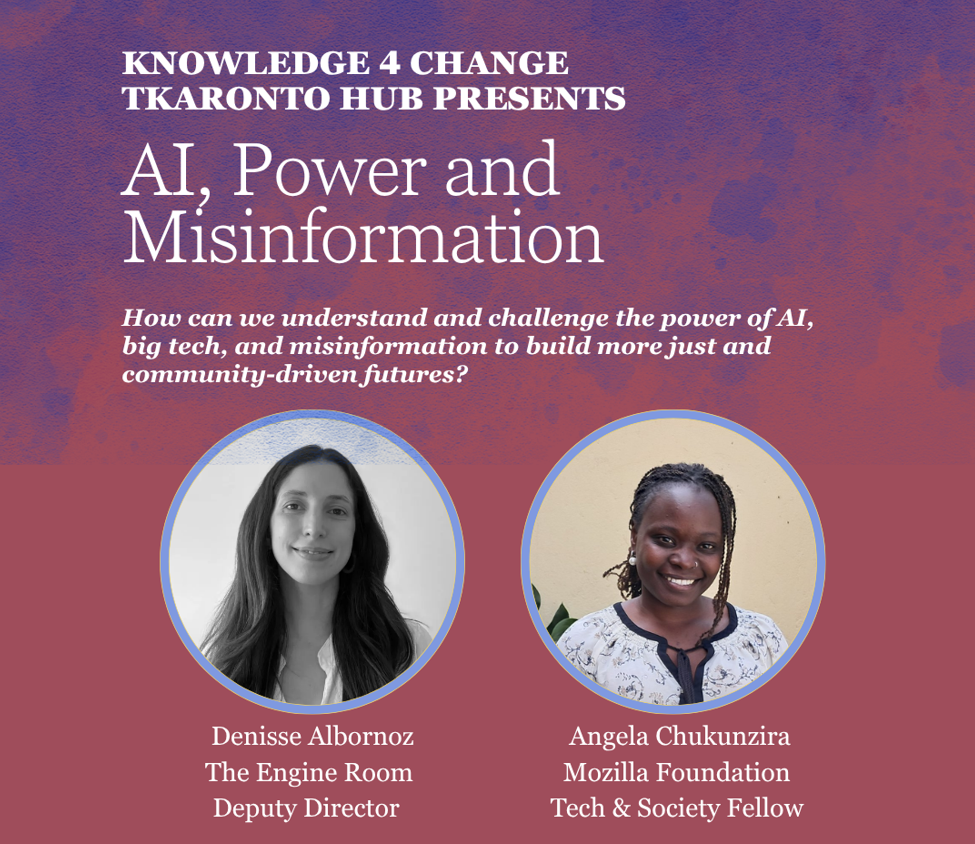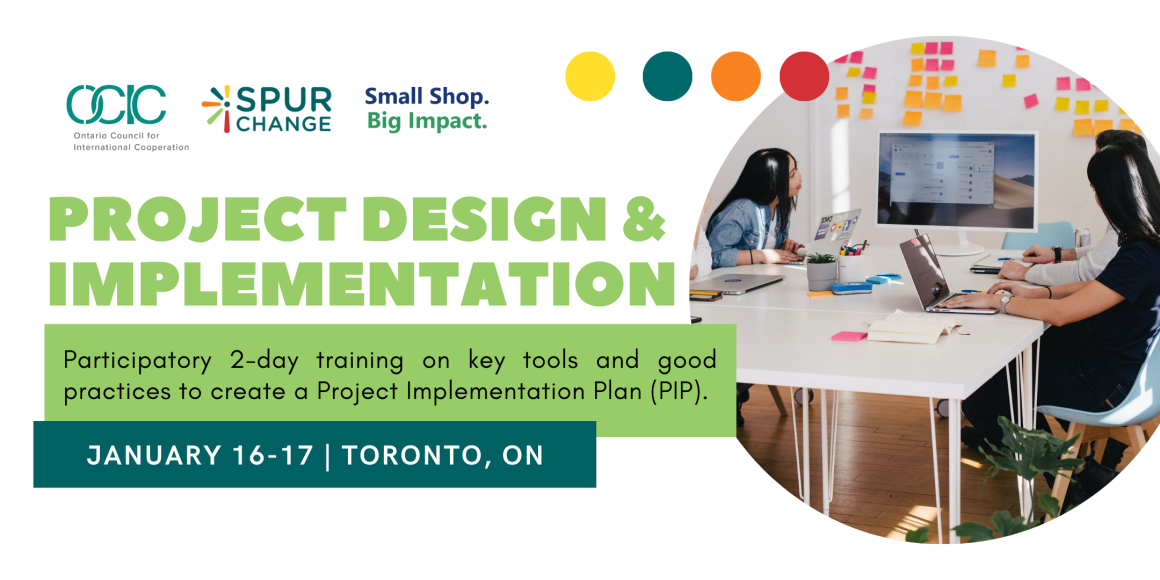“Community-based research is an approach that involves active participation of stakeholders, those whose lives are affected by the issue being studied, in all phases of research for the purpose of producing useful results to make positive changes”
– Nelson, Ochocka, Griffin & Lord (1998), Community-Based Research Canada
You are invited to the Community-Based Participatory Action Research (CBPAR) Summer Institute in June 2023.
The Knowledge Equity Lab (KEL), UTSC, the Toronto Centre for Community Learning & Development (CL&D), and the Ontario Council for International Cooperation (OCIC) are excited to open registration for a unique in-person learning opportunity focused on Community-based Participatory Action Research (CBPAR).
Over two days, the K4C Summer Institute will include opportunities to learn about the origins, purpose, key principles, ethics and planning phases of CBPAR, and to discuss and explore equitable university-community research partnerships, mindful participatory observation and interviewing, participatory theatre, muralism and community mapping.
Participants may include:
- Representatives of Community-led Organizations
- Students, Academics & Researchers
- Representatives of Civil Society Organizations (CSOs) working locally and globally
- Policy makers in local, national and internationally focused institutions and organizations
Registration Fee: $30.00
Morning refreshments and lunch will be provided.
A limited number of registration fee waivers are available for those that would otherwise not be able to attend. Click here to apply. Applicants will be notified of the status of their fee waiver application on a rolling basis.
To ensure the quality of the learning experience space will be limited. If you have any questions, please contact:
Karen Villanueva, Deputy Executive Director, Toronto Centre of Learning & Development at karen@tccld.org
Arabelle Arcaina, Membership & Administration Coordinator, OCIC at arabelle@ocic.on.ca.
Preliminary Program
| Day 1 | June 22, 2023 |
9:00 – 9:30 | Registration & Refreshments |
9:30 – 10:30 | Welcome Ceremony |
10:30 – 12:00 | Introduction to Community-based Participatory Action Research |
12:00 – 1:15 | Lunch |
1:15 – 3:15 | Mindful Participatory Observation & Interviewing |
3:15 – 3:30 | Closing |
| Day 2 | June 23, 2023 |
9:00 – 9:30 | Registration & Refreshments |
9:30 – 10:00 | Welcome |
10:00 – 12:00 | Participatory Theater Workshop |
12:00 – 1:15 | Lunch |
1:15 – 3:15 | Muralism Workshop OR Social Cartography Workshop (Participants Choose 1) |
3:15 – 3:30 | Closing |
About Our Hub
The K4C (Knowledge For Change) Tkaronto Hub was co-founded in the summer of 2019 by the Knowledge Equity Lab at University of Toronto Scarborough, OISE at the University of Toronto, Toronto Centre for Community Learning & Development (CL&D), and the Ontario Council for International Cooperation (OCIC). The K4C Tkaronto Hub is part of the global K4C Consortium, which includes 22 Hubs around the world in Canada, Colombia, Cuba, India, Ireland, Italy, Malaysian, Mexico, South Africa, Tanzania, Uganda and the United States of America.
Our collective goal is to enable transformative change by providing accessible opportunities for students, educators, academics, community development and international cooperation practitioners in the Greater Toronto Area region and beyond to learn about CBPAR, and to facilitate community-academic partnerships to carry out CBPAR projects. For examples of our previous CBPAR projects, click here.
Summer Institute Workshop Facilitators
Alexis Bornyk Taanishi Alexis Bornyk dishinihkaashoon. Aen Michif niiya, Treaty Six d’ooshchiin. Mii paaraantii Rivayr Roozh ooshchiw. My family is of mixed Michif and Settler heritage. I am a Michif, Russian, Ukrainian and German woman who grew up in Treaty Six Territory, the homeland of the Grand Prairie Métis. My community is the Gabriel Dumont Local 11 Michif peoples. I am currently residing as a visitor on the lands of the Mississauga of the New Credit, Anishinabek, and Williams Treaty territory. In my work I see the world through two lenses, my Michif worldview and colonial educated worldview, this helps me walk in two worlds as I move forward with my research and life interactions. I am going into my fourth year at UTSC in the International Development Specialist Program and focus my studies around how the colonial system of society affect Indigenous Nations across Turtle Island.
Nancy Cardwell is a PhD candidate at the Ontario Institute for Studies in Education (OISE), University of Toronto. Her research focuses on arts in education through the lens of critical literacy studies and feminist theory. Nancy has created workshops for outreach programs at the National Ballet of Canada, the Stratford Festival, and for school boards across Ontario. A Dora Mavor Moore and Gemini award winning dancer and choreographer, Nancy is an established artist on the Canadian dance scene.
Leslie Chan is an Associate Professor, Teaching, in the Department of Global Development Studies (DGDS) and the director of the Knowledge Equity Lab at the University of Toronto Scarborough. Leslie served as the Program Supervisor and Associate Director of the Centre for Critical Development Studies (now the DGDS) from 2013 to 2021. An early practitioner of the Web for scholarly exchange and online learning, Leslie has been interested in the role and design of knowledge infrastructures and their impact on local and international development.
Saman Goudarzi’s work operates at the intersection of information science and critical geography. She’s particularly interested in the ways in which community-owned and -governed infrastructure can contribute to equitable knowledge systems. Currently, Saman takes care of McMaster’s Lloyd Reeds Map Collection, ensuring community members are able to access, understand, and use the collection for teaching and research.
Maggie Huang is an advocate for knowledge equity, the right to research, and community-driven systems change. She believes every person and community has deep knowledge & wisdom within them, and has the right to learn and collectively act on this knowledge to co-create the change they want to see.As a UNESCO-certified CBPAR mentor supporting the Knowledge 4 Change Tkaronto Hub, convenor for community-led systems change at the United Way for Greater Austin, and workshop facilitator for a variety of organisations and activist groups, she draws on a diverse toolbox of participatory research, mindfulness and collective presencing, community development, and systems change practices to enable these aspirations.
Elham Rasoulian’s educational background is in Industrial Engineering. After moving to Canada in 2019, she started her Canadian career journey by joining the Immigrant Women Integration Program (IWIP) in the Centre of Learning and Development (CL&D). For her Community-Based Participatory Action Research (CBPAR), she focused on Affordability and Availability of Childcare for Newcomer Families in Toronto. Having a Project Management lens, she co-designed the workshop regarding planning for community-based research for the next IWIP cohorts. Elham is currently leading the IWIP Program and collaborating with CL&D and MAP Centre for Urban Health Solutions in community-based research projects.
Karen Natalia Villanueva is a Colombian immigrant who is currently based in Tkaronto, Kanata (Toronto, Canada). She graduated from York University with an Honours Bachelor of Arts in International Development Studies and has a Master of Social Work degree from the University of Toronto. Karen currently holds the portfolio of Deputy Executive Director at Centre of Learning & Development where she integrates her passion for popular education, activism and visual arts to foster capacity building in immigrant and newcomer populations. Karen has been a Board member of Community Based Research Canada for the last two years to bring awareness and representation to the increasing need of CBPAR in Toronto communities.
Summer Institute Coordinator
Alphonse Basogomba is the Chairman of the “Intercultural and Diversity Education Centre” (IDEC-Ireland CLG), a joint community/university/statutory organisation platform for actions on interculturalism and diversity in Ireland.
Alphonse came into Ireland in 2004 from Burundi (East-Africa) as an asylum seeker, and spent the following 11 years living in Direct Provision. During that time Alphonse worked as a volunteer in Community Development sector, he was member of different committees at local, regional and national level and co-created 2 organisations promoting and facilitating the peaceful interaction of cultural diversities in Ireland.
After his asylum process, Alphonse started and completed his Master of Arts in “Peace and Development Studies” at the University of Limerick and afterward founded his “Diversity and Inclusion Consultancy” called “Buheri Consult”. Alphonse is also a Casual Lecturer in “Community-Based Participatory Research” (CBPR) at the University of Limerick.
Alphonse is polyglot, speaking 3 European languages (French, English and Russian) and 3 African languages (Burundian, Rwandese and Swahili).









